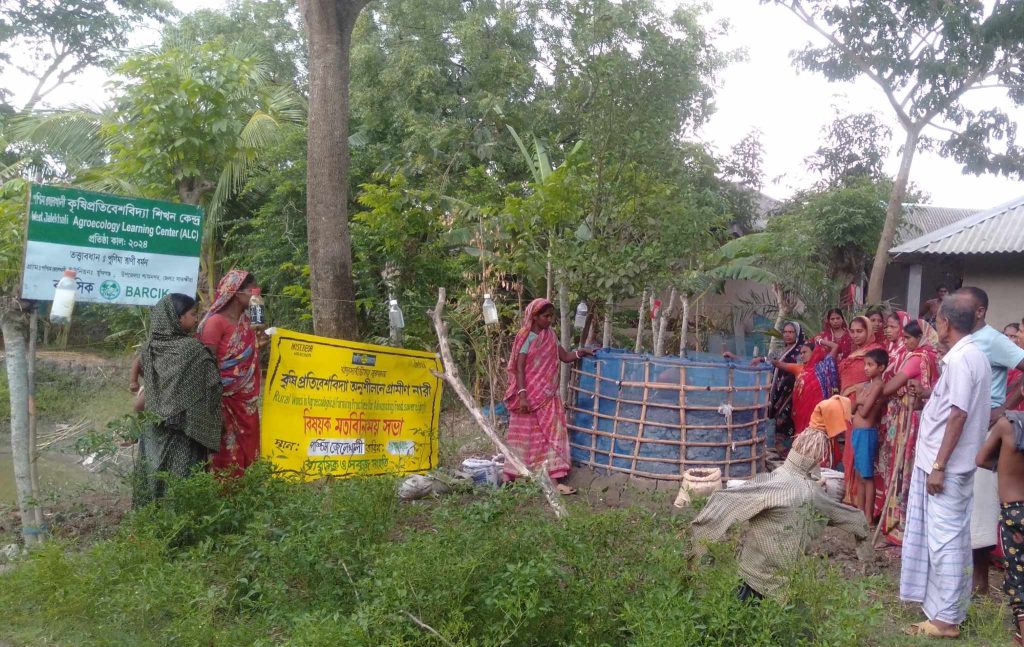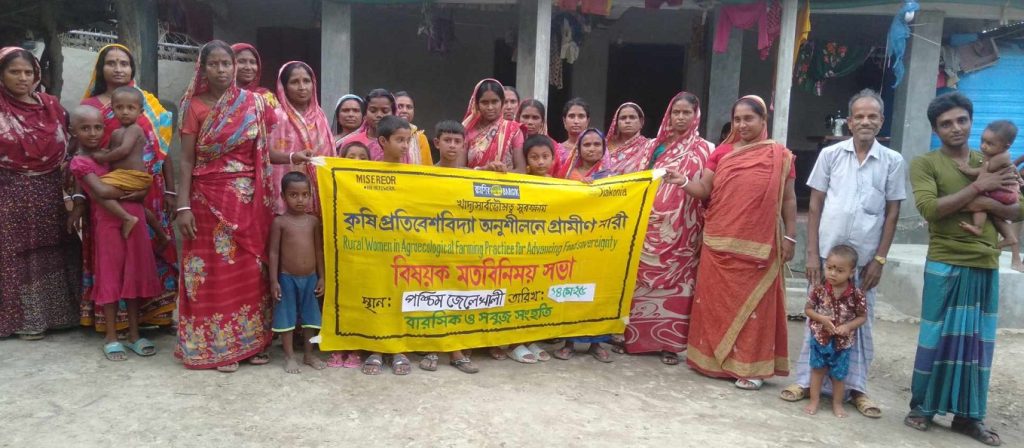By Biswajit Mondal, from Shyamnagar, Satkhira
A discussion meeting on “Rural Women in Agroecological Practices” was held at the Purnima Rani Agroecology Learning Center in Paschim Jelekhali village under Munshiganj Union of Shyamnagar upazila, Satkhira recently. The event was organized by Green Coalition and Shapla Krishi Nari Sangathan with the support of BARCIK.

The meeting was chaired by member Bhodor Chandra Mondal and 35 participants, including members of Shoto Bari, the learning center, teachers, students, and local farmers participated in the meeting.
The discussion focused on women’s involvement in agroecology, their role in food production, the recognition of their contributions by society and families, and the challenges they face in upholding food sovereignty.
Farmer Champa Maji said, “We women start our day with household chores, then go to work in the fields preparing land, planting, caring for crops, raising livestock’. ‘Still, we are told that we ‘do nothing. Yet we work hard for our families and also play a vital role in preserving nature” she added.
Participants Purnima, Tulsi, and Lata Rani said, “Living in a coastal area, we constantly deal with natural disasters. To survive, we have had to adopt various strategies. From sowing to harvesting, preserving, and even maintaining soil fertility through composting household and organic waste, women do it all.’ They went on saying, ‘we also determine which crops to plant around our homesteads. Additionally, many of us are involved in shrimp and crab farming, collecting fish larvae, net weaving, and wage labor—contributing not only to nutrition but also to household income.”
Male farmers present at the meeting acknowledged that despite women playing key roles in food production and management, their contributions are rarely valued saying, “it is time we start recognizing their work and giving them the credit they deserve”.

The participants highlighted numerous challenges they face in farming such as rising temperatures, salinity, excessive rainfall, chemical usage, pest outbreaks, shortage of native seeds, wage discrimination, and limited representation of women in government committees.
In response, they called for the recognition and rewarding of women’s household labor, reducing wage disparities, increased inclusion of women in government and NGO committees, improved market access for farm products, restoration of natural water bodies, awareness campaigns, and skill-based training to support and expand women-led food and farming initiatives.

